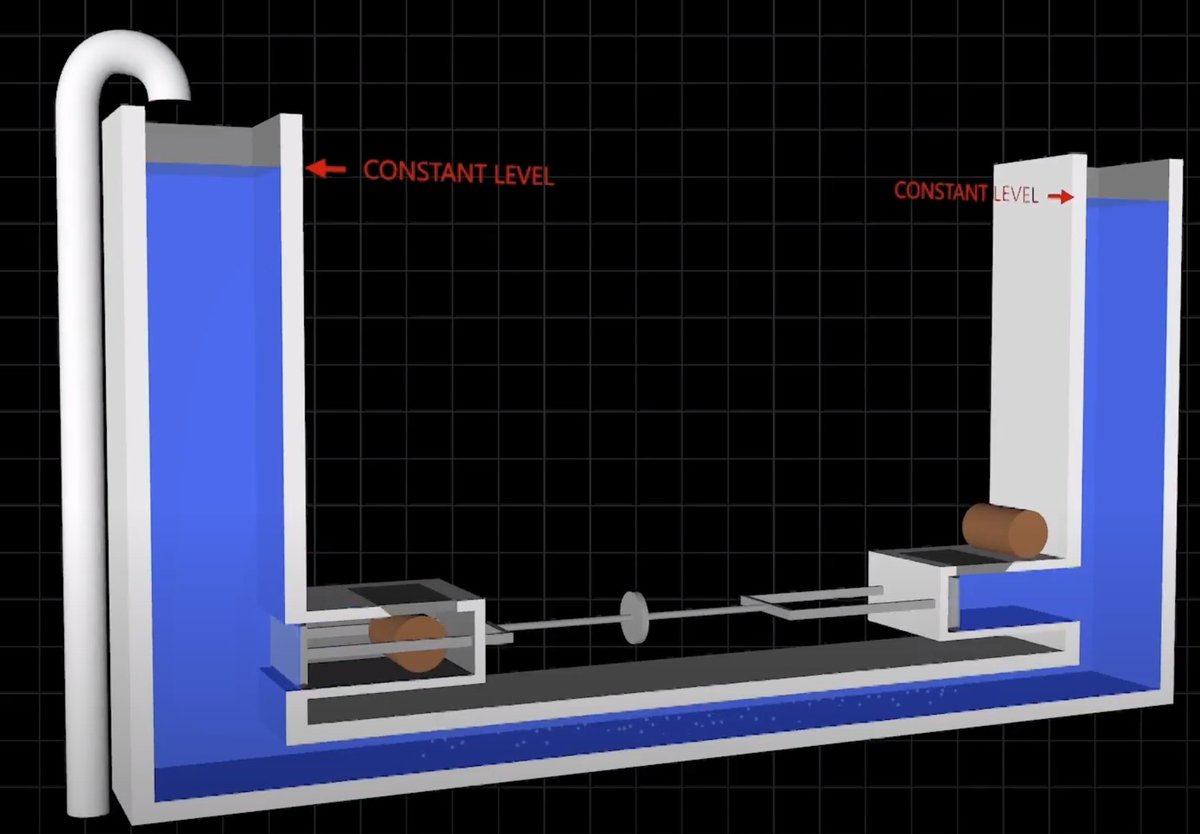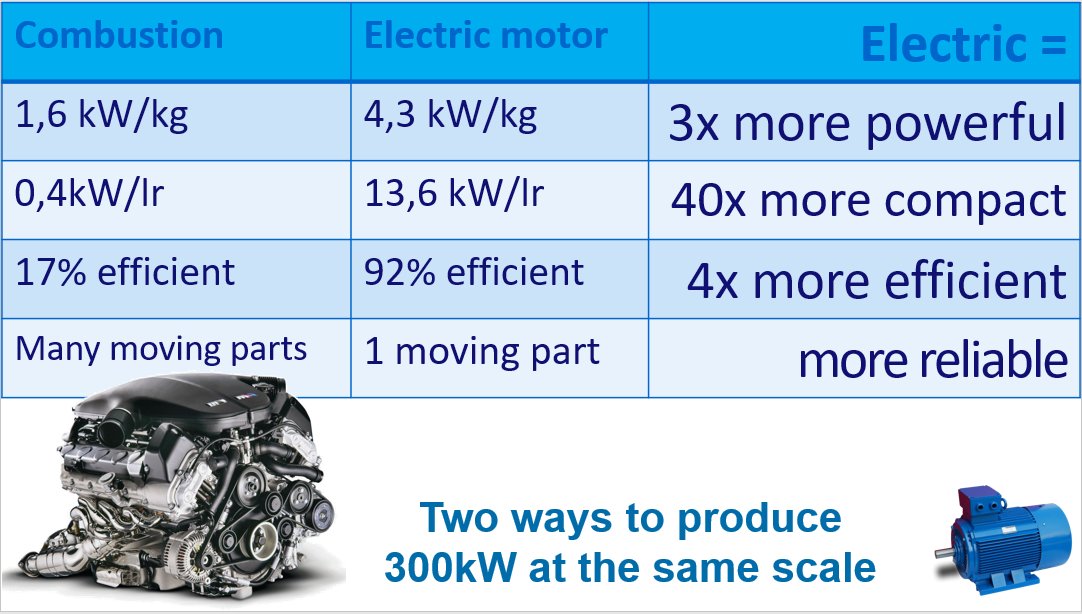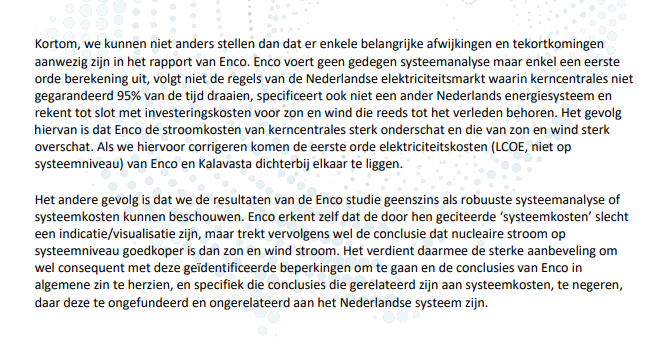
Grand demonstration today in Heeze-Leende of a new perpetuum mobile from energytowers.de.
It promises continuus energy without nuclear, fossil, wind or solar.
Hooray!

It promises continuus energy without nuclear, fossil, wind or solar.
Hooray!
https://twitter.com/HeezeLeende24nl/status/1314145499117744130?s=20

Can you see if it will work as advertised?
(Explanation starts at 40 seconds and ends at 1:36.)
(Explanation starts at 40 seconds and ends at 1:36.)
Perpetuum mobiles violate the first or second law of thermodynamics so scientists scoff at them. But often it is not trivial to prove a specific perpetuum mobile will not work.
In this case though it's analogous to an old idea that's already been disproven called the float belt.
In this case though it's analogous to an old idea that's already been disproven called the float belt.
The idea (just like with energy towers) is that you insert a body that is lighter than water at depth and then harvest the power of the body floating upwards.
physics.stackexchange.com/questions/556/…
physics.stackexchange.com/questions/556/…

But the insertion is where things go wrong.
Inserting the body into the bottom of a high column of water requires much more energy than inserting it at the top of the column. So much more that it exactly cancels out the energy that is produced when floating to the surface.
Inserting the body into the bottom of a high column of water requires much more energy than inserting it at the top of the column. So much more that it exactly cancels out the energy that is produced when floating to the surface.
Energy towers adds an interesting sleight of hand by suggesting that this problem goes away using their 'ingenious' design of two communicating vessels, focussing our attention on the movement of the two pistons and how they can move without using energy. 

But that sleight of hand using the pistons is just a distraction.
The energy is still lost because one piston pumps up it's volume of water *MINUS THE FLOATING VESSEL* while the lower *THE ENTIRE VOLUME*.
So, nope, this Energy Towers perpetuum mobile will not work either.
The energy is still lost because one piston pumps up it's volume of water *MINUS THE FLOATING VESSEL* while the lower *THE ENTIRE VOLUME*.
So, nope, this Energy Towers perpetuum mobile will not work either.
Apologies for the rude awakening to those who actually believed this. But I'm pretty angry at the irresponsible businessmen who want to make a buck by lying to people about something as important as the clean energy we need to power our civilization.
Fortunately the earth still intercepts many thousands of times the energy we need from the sun. It will 'only' last a few billion years but that means it's basically a de-facto perpetuum mobily on human time scales. And a pretty big one too. Hooray! 

• • •
Missing some Tweet in this thread? You can try to
force a refresh







